Accidental rewilding in action
Its healing power in war and peace
My parents died in quick succession in 2023.
The probate process ran through 2024. During that time, my siblings and I kept their house in good order for when it could go on sale.
But the garden was another matter altogether.
It had always closer to kempt than unkempt but not overly so. My parents each did their bit. My mother kept on top of the weeds. My father was handy with the mower.
They both loved their garden.
In fact, in lockdown I’m not sure they didn’t just move out of the house and live there.
But with them both gone, that spring the garden let rip.
It was my job to get Robert the gardener in to ‘tame’ it. We agreed on a day in late April.
I decided to arrive early and I was so glad I did.
The garden’s unrestrained beauty left me speechless.
Flowers that they had carefully tended like lobelias and forget-me-nots had taken centre stage but others had cracked on without the usual adult supervision about.
The unmistakable waft of untended wild garlic in the front garden would stop passers-by in their tracks.
The family of foxes that lived underneath the decking of the shed clearly appreciated the extra cover it gave them judging from the detritus they had left by the door.
The spring after my parents had left this life, their garden had come into an over-abundance of it.
This was accidental rewilding in action.
Nature was stepping in to fill the void that their departure from life had created.
We had seen this same phenomenon during the first lockdown five years ago.
Mountain goats on the streets of Llandudno, wild boar in downtown Barcelona, coyotes in Central Park - nature was on the move in our absence and we all found it both amusing and moving. What happened in my parents’ garden was perhaps less spectacular but all the more poignant for me.
The serried ranks of tents and caravans had been replaced by thistles and molehills
A few weeks later I had an encounter with accidental rewilding in a professional capacity.
I was on the Isle of Wight scouting a campsite for a client. It had been unoccupied for some time, just like my parents’ garden.
The ghosts of holidaymakers past were visible in the rows of trees and hedges that used to mark out the pitches. The serried ranks of tents and caravans had been replaced by thistles and molehills.
Nature was returning after the temporary incursion of humankind that had lasted just a handful of decades.
Accidental rewilding has not always been of a peaceful nature like this. ‘War wilding’ is a term that has been recently coined but it has been around since man first made war on man.
Ukraine is no stranger to the ecological benefits of man-made catastrophe. The radioactive exclusion zone created in 1986 by the Chernobyl nuclear disaster is now two thirds tree covered and self seeding. It has recently been designated Europe’s third largest nature reserve.
The current conflict with Russia has seen the destruction of dams in the Ukraine by both sides for defensive and offensive purposes. The dynamiting of a dam on the Dnieper River was described by President Zelensky as “the largest man-made environmental disaster in Europe in decades”. It certainly was a catastrophe for those who lived downstream of it.
However nearly two years on what was described as a war crime is now widely seen quite differently. The bed of the former reservoir is re-seeding itself with willows and the river has re-discovered its former wiggles and long-lost channels1.


The war zone most close to home for the English are the First World War battlefields of northern France2.
On the front line of the Somme in 1916, a Private Norman Ellison could not “recollect any spring that thrilled me more”. With “amazing suddenness” out of nowhere came “swallows, warblers and nightingales” seemingly oblivious to the death and destruction below their flight path:
One felt that man might destroy himself and his civilisation through the incredible stupidity of war, but the annual re-birth of nature would continue.
My own city London also knew a blossoming of biodiversity after the pummelling it took from the German Luftwaffe in the Second World War. It has been well documented how the rubble-strewn streets encouraged hitherto rare plants like rosebay willow-herb and birds like the black redstart to thrive3.
When I came to start writing about my discovery of nature here last year I was well aware that my parents’ deaths were a key motivation.
The title I gave to my writings (The Diary of an Accidental Rewilder) was a conscious riff on my part, both on the zeitgeist and on my fascination with post-apocalyptic landscapes.
But the evolution of their garden over the last year and the realisation that it will soon be in the hands of new owners has made me realise that ‘Accidental Rewilding’ is more than a catch-phrase to me now.
These photos of their garden, both with and without my parents, will be some of the important images I want to remember them by, now and for years to come.
Thanks to Yale Environment 360 for this detail
Quoted from John Lewis-Stempel’s ‘Where Poppies Grow - The British Soldier, Nature, The Great War’.
‘London’s Natural History’ by R.S.R. Fitter, ‘Urban Jungle’ by Ben Wilson, ‘The Accidental Countryside’ by Stephen Moss, amongst others.


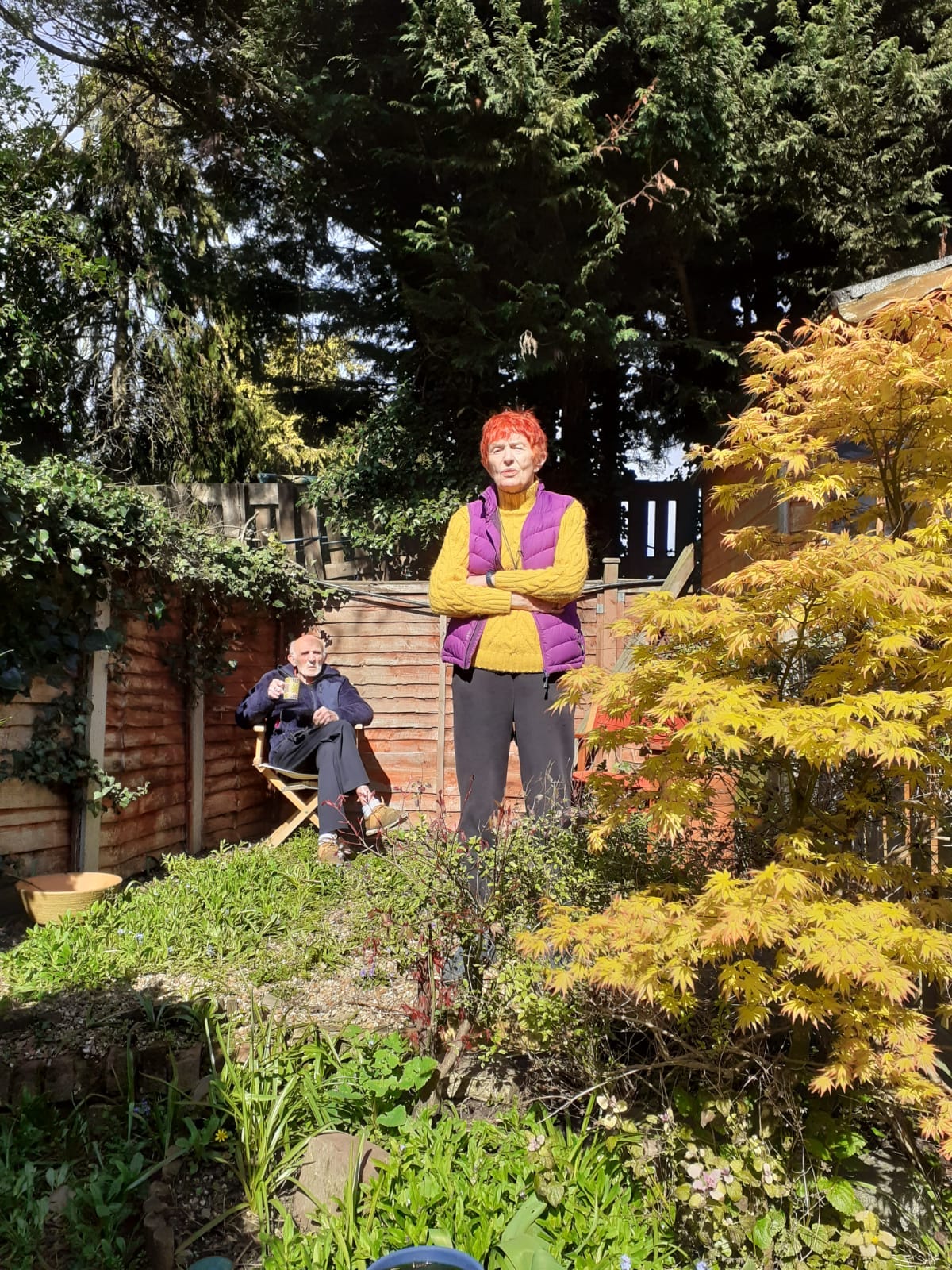

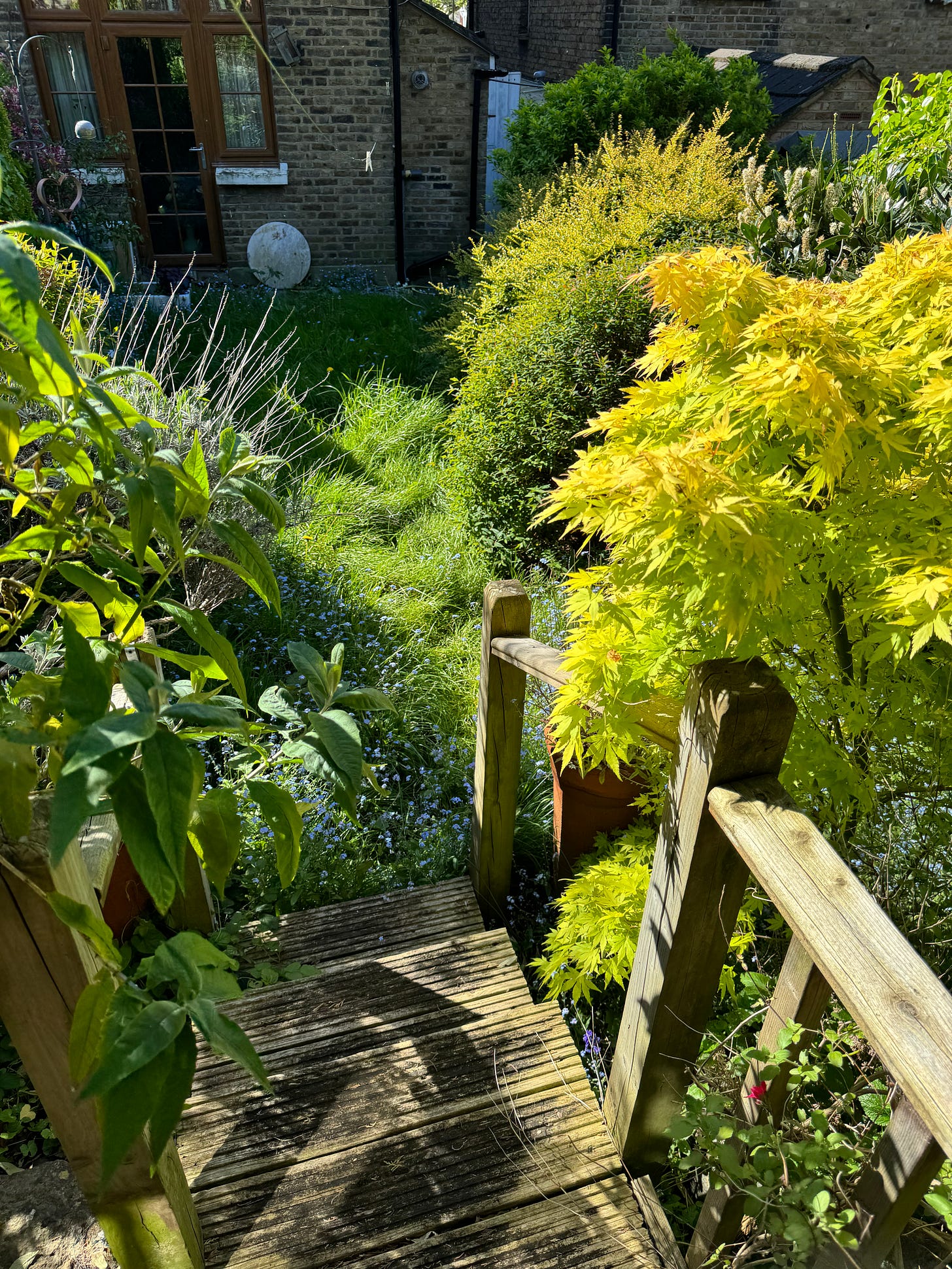
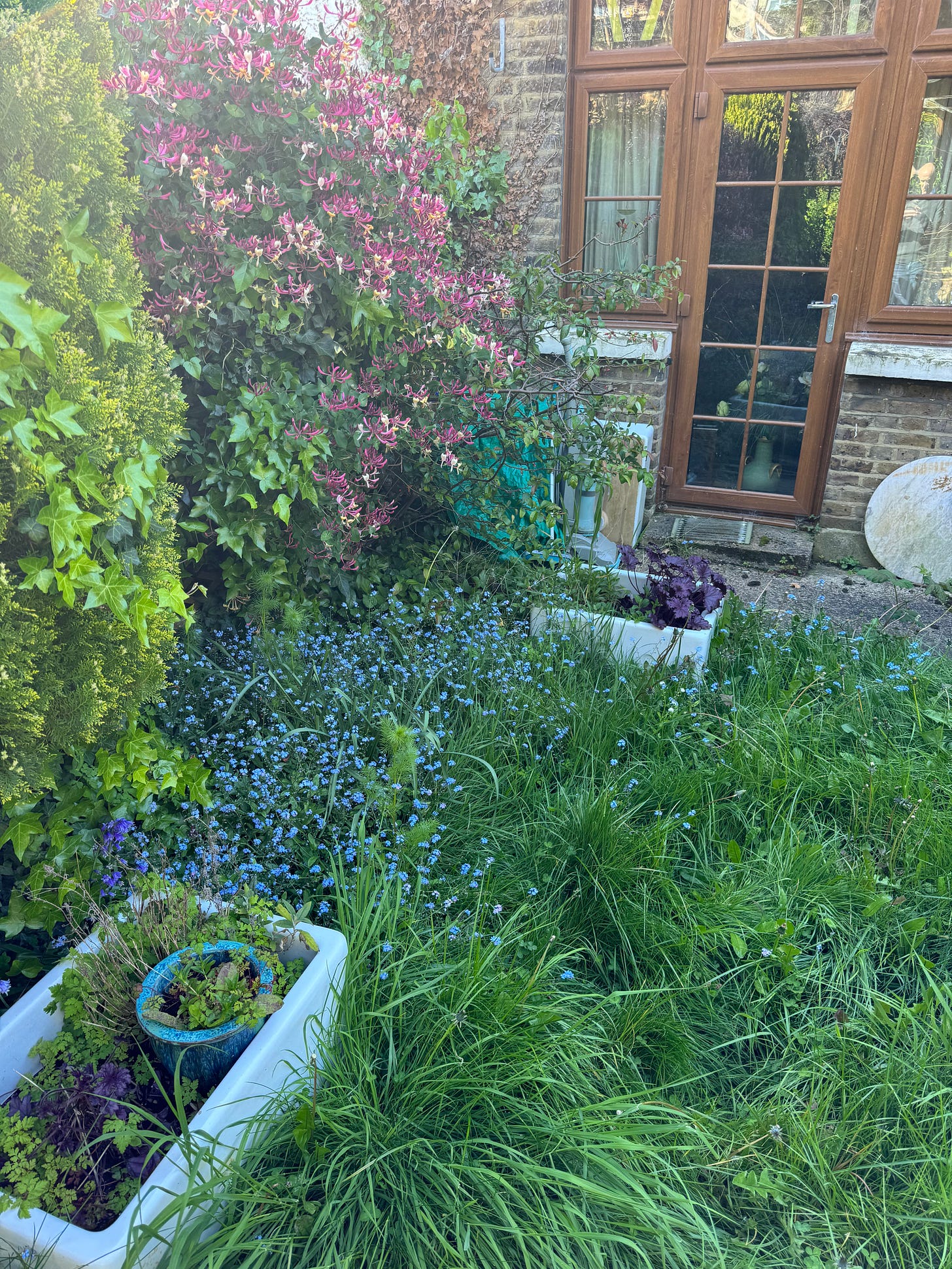
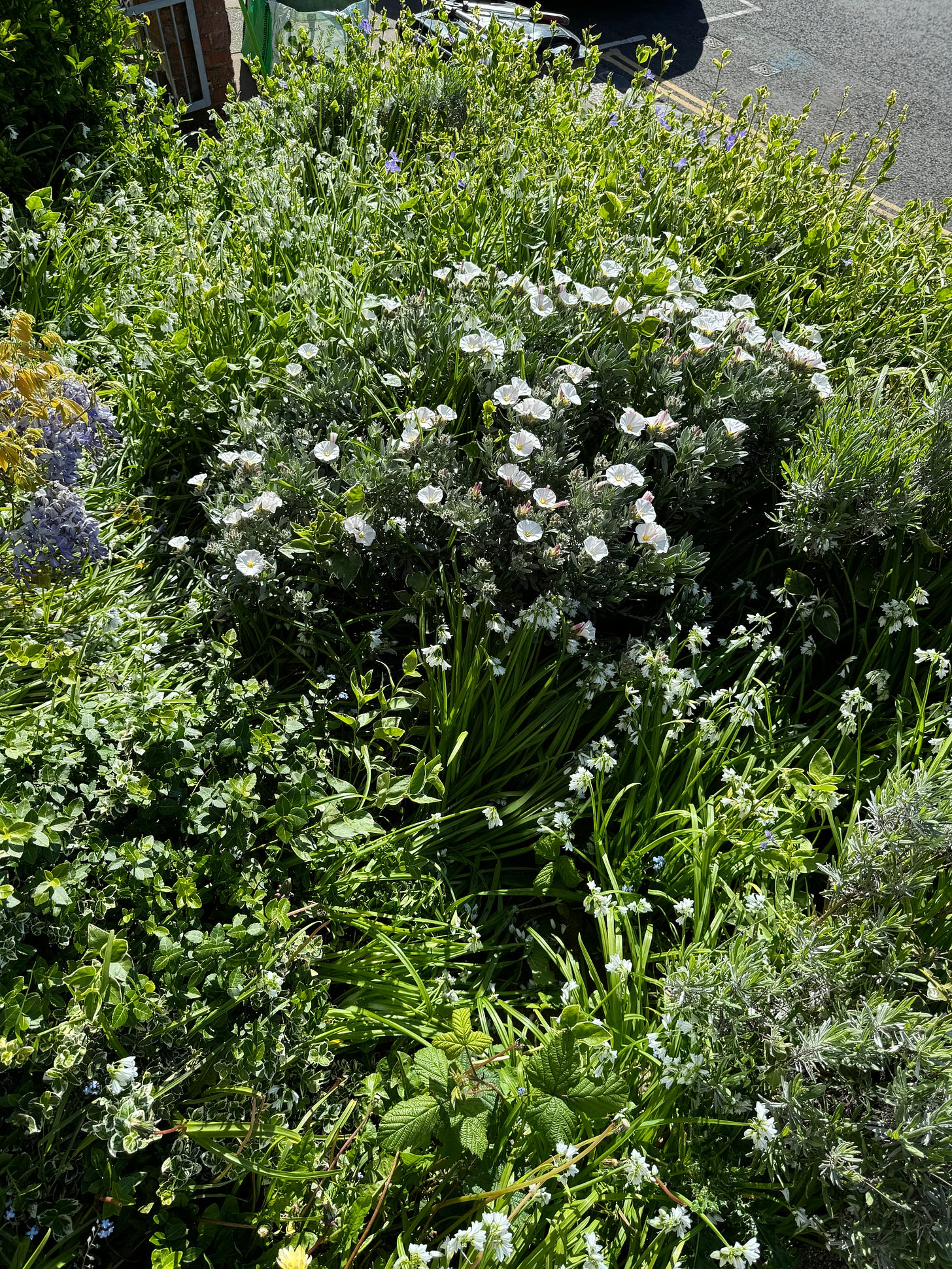
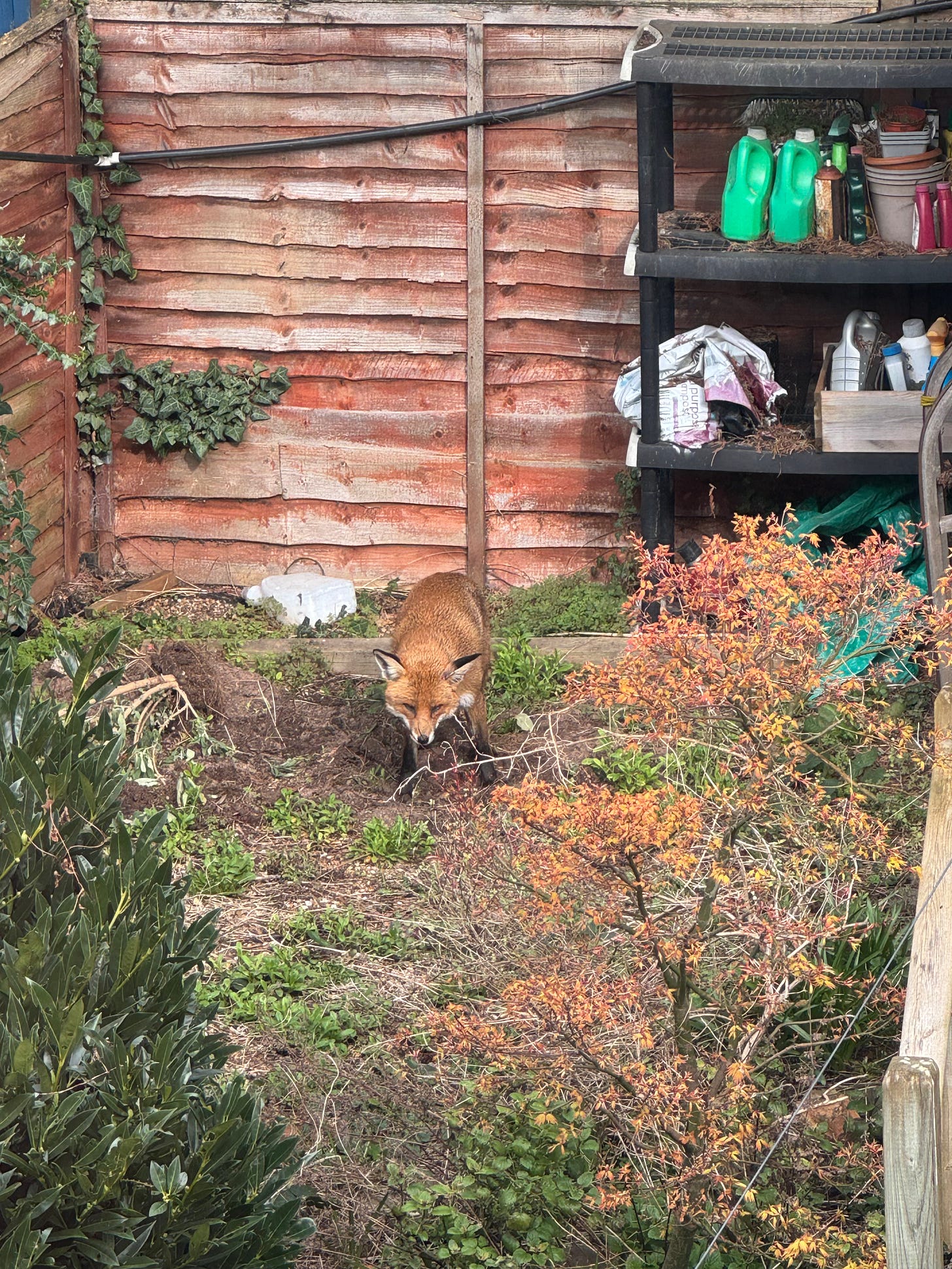
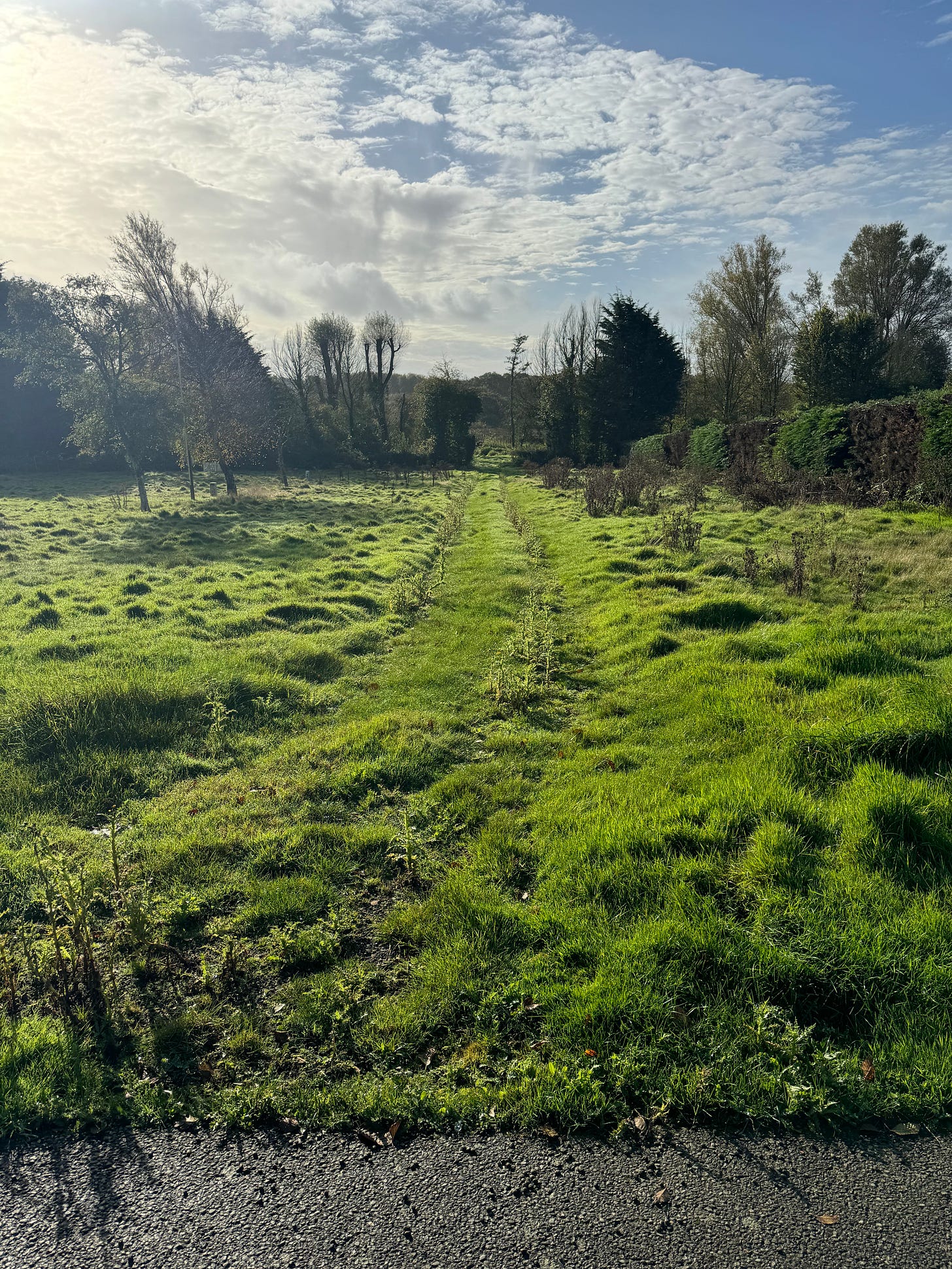

Thanks for the mention of the London book. I'll seek it out. I read John Lewis-Stempel's book a few weeks ago and enjoyed it. Have you read The World Without us?
Your parents' garden is an amazing example of how fast nature moves back in.